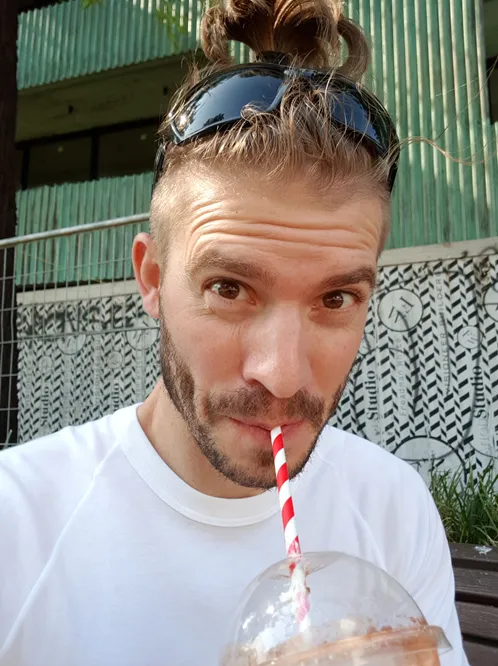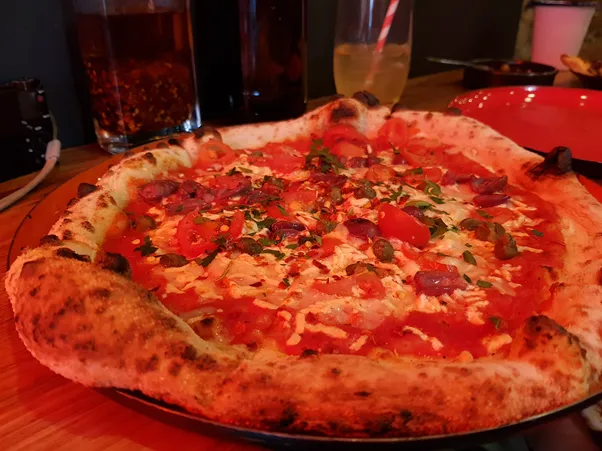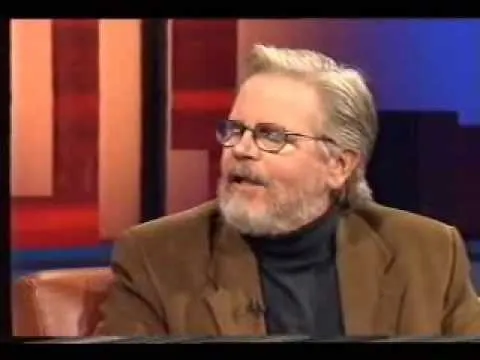
One of the best things I’ve done in my life outside of forging the single most important relationship in my life (with my beloved Hayley, of course), is becoming vegan.
As a male vegan, I’m a minority of a minority – albeit, a very quickly growing minority.
Making the conscious decision to change my way of life and eating back around 2012 marked a point in my life that ended up being a save point. I was never going back to the start of the game. I never want to participate in the mass death and exploitation of animals that is simplified, watered down and called an industry. In a human context, this is called genocide. Heated language? You bet.
Social transformation is never easy. It will pit you against your own friends when you threaten their cultural norms.
I don’t think it has ever been easy for me insofar as having to deal with uneducated and ignorant people pushing their own beliefs on me after having to politely let staff know that I won’t be participating in the Melbourne Cup stakes or eating the cake made on eggs and milk. As any seasoned vegan will tell you, they’ve heard this line a zillion times. When I see it coming, I interject and steal those words right out of their mouth. Especially when I’m feeling a bit cocky or I’m not in the mood for niceties;
How do you know if someone’s vegan? Don’t worry, they’ll tell you.
I’m not sure how this saying ever got so much traction, and I guess I’m not helping to stop it in it’s tracks by repeating it, but it at least needs to be addressed.
As a vegan, there’s so much food I eat and I love it. From fruit sorbets, lasagne, pizza, roasts and falafel I’m spoiled for choice.

Vegan pizza from Melbourne's Red Sparrow, an all-vegan pizza place.
However, to avoid contributing to worldwide animal use and abuse, I do avoid eating and buying meat and animal derivatives to dry up the supply of these products. Supply and demand is a simple economic theory based on the fact if people buy a product, it is in the interest of the seller to make more of it. If no one is buying a particular product now, they are unlikely to buy it later. Thus there is no profit to be made in attempting to sell an unwanted product. In order for me to avoid those products, I need to know what’s in them. If you’re at a restaurant or with friends, you need to tell people you’re vegan. If I never interacted with people and just had to read ingredient lists, the saying would probably be more like;
How do you know if someone’s vegan? Don’t worry, they’ll be the ones scrutinizing the ingredient lists.
Doesn’t have the same punch to it, does it?
Anyone actively supporting positive change, is going to talk. And let me tell you, when I first went vegan, I made quite the fuss!
Prior to becoming vegan, I ate every food I came across. I really didn’t discriminate. I ate red meat, poultry, dairy, eggs and never read an ingredients list. I became a vegetarian when I decided to get more involved in meditation and Buddhist teachings, part of which discouraged harming or eating the flesh of animals (which was a direct result of lethal harm), as that being may have been a mother of mine in a past life. This was bad karma! Big setback to Nirvana. Off limits, you see. During this time, I also took a course in environmental ethics and values during my university days. The course aimed at looking at the spectrum of how humanity treats the environment and those beings who inhabit it. It ranged from Gaia Theory where the actual world is mother earth and you need to treat her with the utmost respect, all the way to the embodiment of large mining companies bent on ripping, tearing and harvesting the Earth’s resources.
“Animal rights” was on the end toward Gaia theory. This was my first in-depth, academic look into why we should abolish animal slavery.
I was particularly fascinated with two outstanding authors and ethicists – Peter Singer and Tom Regan (pronounced Raygun). The videos below are absolutely worth watching in a setting by yourself, late afternoon with a gentle warmth on your face with headphones, preferably sipping some hibiscus tea. Specific much? Hehe. I really love setting the mood for many of life’s activities! I have my special comic reading spot, too.
On a serious note, it will make you think,
“Oh, shit. They’re just right and I’ve been doing it wrong this whole time.”
Well, it did for me.
Peter Singer discusses animal ethics with Richard Dawkins.
Tom Regan on the Late Late Show in Part 1 of 4.
Around the same time, I watched Earthlings. I already came to the vegan conclusion before watching this film. My logic was;
“Yeah, why the hell am I eating animals if they feel pain and I don’t need to in order to thrive?”
Holy shit. This film almost scarred me for life. I didn’t watch the whole thing and really, you shouldn’t. If you’re already a vegan and convinced of your path, DO NOT WATCH THIS FILM.
I implore anyone who eats animals and their products to watch the film until they get a gut reaction.
Once you get that, your mind will be made up. Do yourself a favour and don’t traumatise yourself any longer, just ditch the meat, eggs and dairy to remove yourself from the system of exploitation. With the transition, comes a free soapbox to use at your discretion!
Where do you draw the line? Can I eat oysters and insects?
Tom Regan says to draw a line with a pencil. When we find out more information about the ability of an animal to feel pain and suffer, it will allow us to make better decisions as to what we ought to eat based on moral grounds. I don’t eat insects and oysters because I don’t need to! It’s also probably not ideal to consume filter feeders that may accumulate toxins and heavy metals.
One of the most compelling arguments that I was faced with upon my journey through these waters is that if a being can feel pain, joy and happiness, then I have a moral obligation to not harm that animal unless it was justifiable.
Is killing pigs, sheep, cows, poultry or fish justifiable?
Considering that there are often huge debates in Australia when a surfer is inevitably bitten by a shark as to whether the shark should be killed, I think it’s high time people look at their own dinner plate or breakfast bowl. And for what it’s worth, killing the shark would be a stupid idea – it’s often a case of mistaken identity (human paddling on surfboard looks a lot like a seal) and it’s a risk you take when you enter the domain of a frightening apex predator. I suppose this dispels the myth that humans are atop the food chain, right?
Is the animal an immediate source of danger?
If you happen to be walking through a forest on a trail and a hidden snake strikes, your reaction may be to run or to kick the snake. If you harmed the snake in defence, it would seem justifiable.
Does the animal need to be killed for sustenance?
While I will most definitely write more on the topic of nutrition (despite not being a nutritionist!), considering the healthiest people on the planet – those that live in blue zones consume little to no meat or animal products, it would stand to reason that we could actually benefit by not eating animal products.
Does the consumption of animals benefit the environment?
As we face the largest environmental worldwide threat that is climate change, the agricultural industry is responsible for more greenhouse gas emissions than the entire transportation sector, largely attributed to methane production from cows. Interestingly, people often argue that it is better for cows to live outside eating grass and enjoying the sunshine. Of course, this is all before it’s grizzly end. While I totally agree, a good life would involve a cow being in its natural environment eating grass, cows burp more methane on a diet of grass than of grain. The ability to feed cows grain is a temptation that often encourages farmers to keep more animals in a smaller space in muddy, eroding tracts of land in less than favourable conditions. Short answer: If you’re looking to reduce greenhouse emissions, it’s time to stop breeding cows for consumption.
When or if you become a vegan, you’ll feel a torrent of emotions hit you all at once. Well, you’ll probably just get angry. Really Angry.
Have you ever seen someone kick a dog in public? Maybe a parent belt their child in a supermarket? If you’re able to get over your fear of attack yourself, you’re probably going to yell at the animal abuser or parent for the mistreatment of the dog or child. Just because you didn’t see all the steps getting the chicken to the plate, it’s chronology leads to a horror that lends a more aware person to want to scream or politely tell-off someone for eating that poor creature. Because really, as I have discussed earlier, if you buy it, you condone this mistreatment of the animal.
You’ll soon realise, that despite your anger, they’ll roll their eyes at you and continue eating. Don’t worry. They just don’t get it yet. After all, eating animals has been a conditioned behaviour for most of us in first world countries and is an accepted norm. Beating a child isn’t.
Maybe we need to start treating defenceless animals the same way we treat defenceless toddlers – with love and respect, despite a little frustration at times.
All the best,
Nick.
All content is original.
Are you a meat-eating megalomaniac? Maybe a voluptuous vegan? To show some love, Upvote, Comment and Follow @nickmorphew!
Looking forward to a particular article? Have ideas for the direction of content? Leave your say below. Most comments are read and considered (the shit ones aren't).

